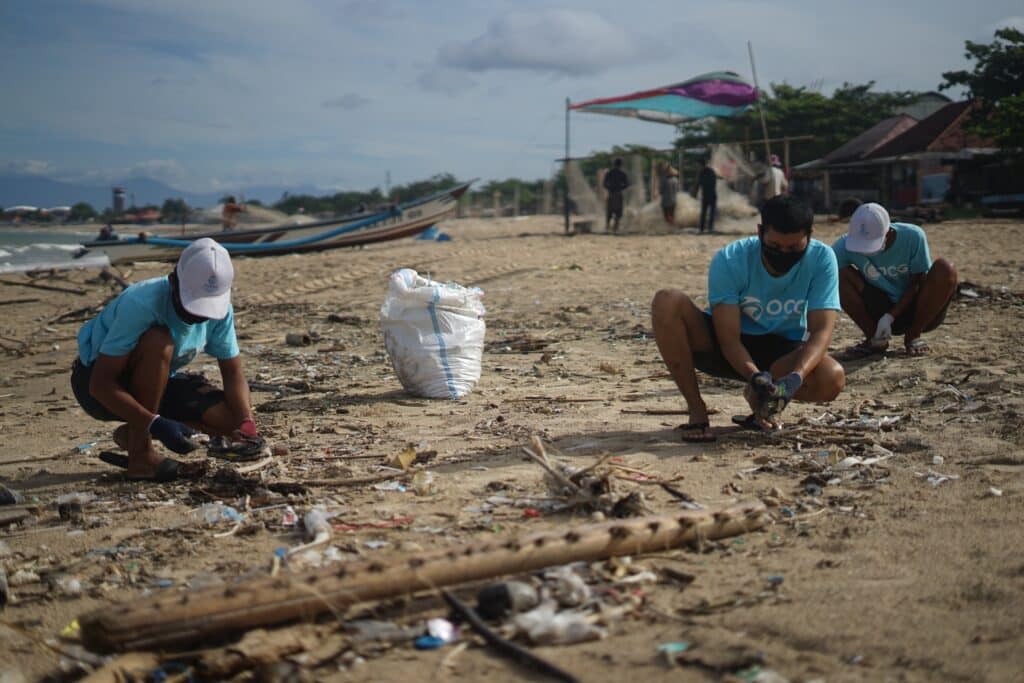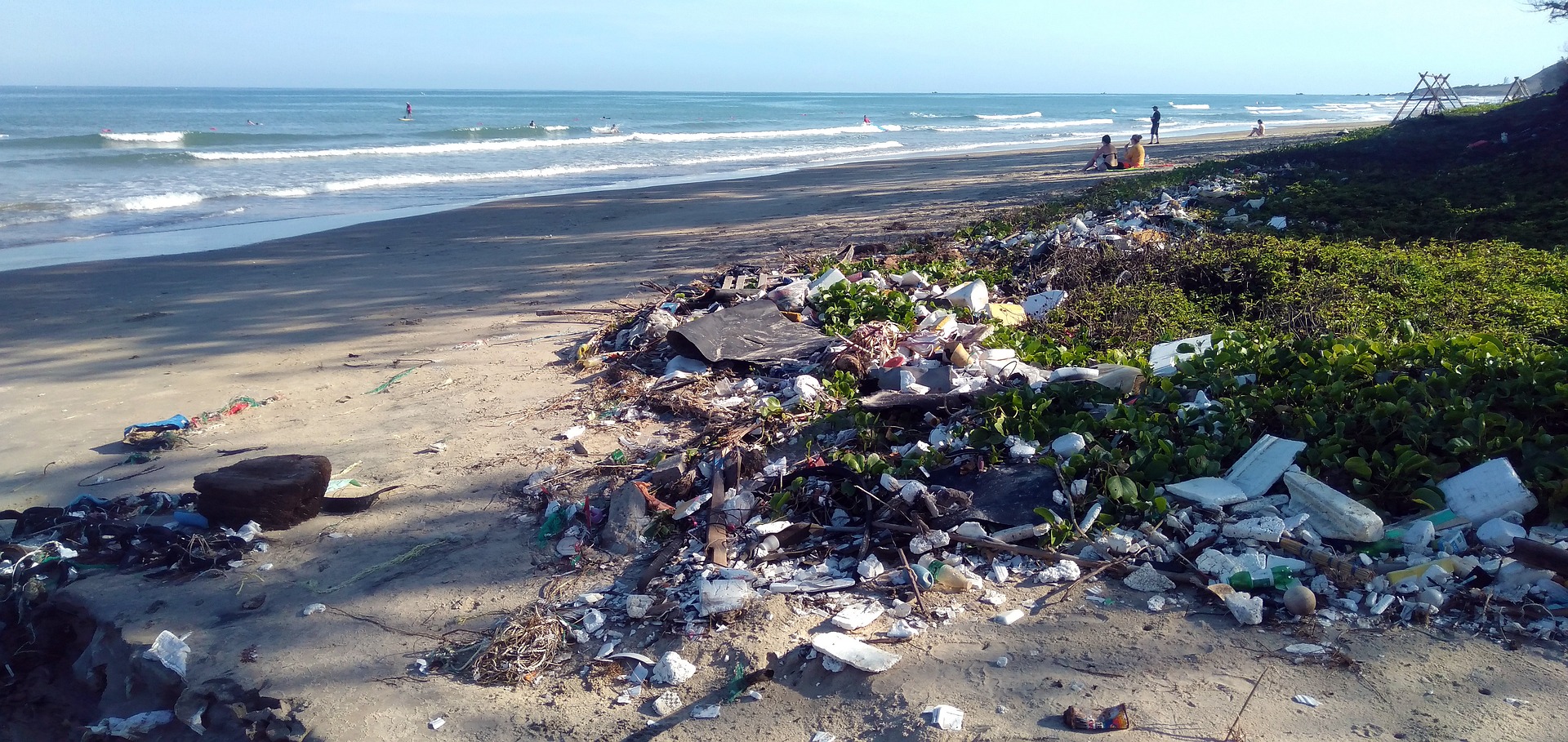“There is no such thing as ‘away.’ When we throw anything away it must go somewhere.” – Annie Leonard, Executive Director, Greenpeace USA
By Panagiotis Kleanthous
Plastics are a ubiquitous aspect of our everyday life. However, these utilities do not come without a price. Every year, nearly 14 million tonnes of plastic end up in the ocean, making up roughly 85 per cent of marine debris or marine plastic pollution (MPP). Consequently, five trillion pieces of plastic waste is afloat at sea including large plastics from electronic industries and microplastics – weighing 250,000 tonnes. MPP results mainly from land-based activities of individuals, organisations, governments, and most importantly the plastic industry. MPP severely harms life underwater but also threatens human food security and global economies.
Plenty of experts have extensively researched the negative effects of throwing plastic into the ocean both on society and the environment we live in. However, marine debris has not been adequately framed as a social justice issue. Marine debris is a justice issue since marginalised groups, Indigenous People, low-income individuals, people working in the fishing sector and people of colour experience disproportionately the consequences of marine debris, compared to other groups of people. Despite the disproportionate effects, the plastic industry’s framing, however, shifts responsibility towards consumers and ignores its own significant role in MPP. This asymmetrical framing ignores the primary source of the plastic crisis, namely the overproduction of hazardous plastics.
Unsustainable norms around plastics
Plastics are repeatedly used out of convenience instead of necessity. The marketing campaigns of plastic producers and consumer brands have normalised this culture over decades. The mainstream narratives around plastic use and waste are globally influenced by those same plastic producers that shift the blame to the consumers, the least powerful actors.

Marine plastic pollution not only severely harms life underwater but also threatens human food security and global economies
How can marine plastic pollution be an equity issue?
The microplastics and chemicals used in plastic products make a long journey across the global food chain. In their journey, they cause serious damage to many living organisms. Therefore, marine debris poses a threat to food security for people and economies internationally.
It is important to frame MPP as a social justice issue because people think that putting their plastic waste into the right kind of recycling bin is an adequate way to help the environment. But things are usually more complicated. Even the policies that aim to mitigate plastic waste, sometimes increase existing inequalities.
The balloon effects of uncoordinated policymaking
Individual states and local levels of government aim to restrict plastics as much as possible. The regulatory differences between jurisdictions incentivises plastic producers and sellers to transfer their operations to jurisdictions with more lenient plastic regulations. The case of plastics production shifting its operations from the West (Europe) to East Asia is a great example of the balloon effect. This phenomenon describes the shifting patterns of illegal activities in other areas. Exploiting the balloon effect, the ever-growing powerful plastics industry manages to avoid oversight or accountability.
Balloon effects create equity implications
It is important to pay close attention to the way the plastics industry responds to limitations on production and sales if we want to address MPP in an equitable manner. To decide whether, where, and how the desired impact is achieved, evaluations of the effectiveness of changes to policymaking must look beyond jurisdictional boundaries in which the policy is applied. It will take a cooperative effort to create a uniform, regulatory environment for plastics, as well as build capacity and transfer technology to developing states to ensure adequate oversight and enforcement of new laws. This will prevent inequitable outcomes, where the negative effects of plastics simply shift to weaker jurisdictions.
Equity refers to the fair treatment of people or groups
Social justice is linked to the impacts of marine debris and its administration. These can be summarised as: responsibility, knowledge, well-being, and coordination.
Responsibility: The plastic industry has become a significant part in the way plastic waste is managed, which has influenced the way governance actions are decided and who is considered responsible to address the problem.
Well-Being: There is a plethora of impacts experienced by communities that are most affected by marine plastic pollution. This range of impacts highlights the importance of understanding them at the community level.
Knowledge: The industry has shaped the way plastics are perceived and framed it as a responsibility of the consumers. The framing around plastics is an issue of waste, not of production. Generally, non-western knowledge and cultures have been excluded from the decision-making and narratives driving the way plastic is being governed. Such negligence results in inequitable outcomes.
Coordination: Uncoordinated policies have proven inefficient in preventing plastic waste.
Going forward
The improvement in consumer behaviour of the public and waste management are not the only liberators of marine debris. MPP is a clear equity issue that requires action considering the injustices caused by MPP and its governance. To address the injustices and achieve equitable, sustainable and long-term solutions:
- Marginalised groups and non-Western knowledge systems should be meaningfully included in political decision-making.
- The industry actors that influence policy decisions and shape environmental norms around plastics and plastic waste should be held accountable for perpetuating these injustices.
- The inequities resulting from MPP and the uneven power dynamics driving inefficient and uncoordinated governance methods need to be addressed.
The policy-making around plastics is not a panacea for the pathway to sustainable development unless it is dismantled from its inequitable practices.
This article is a summary of the Marine Plastic Pollution Report called ‘’Towards an Equitable Approach to Marine Plastic Pollution’’ by the University of Washington Ocean Nexus. You can access the full report here: Access the report
Panagiotis Kleanthous is a Sustainable Finance and Accounting MSc student and a Climate Leader scholar at the University of Sussex and the elected Sustainable Education Officer on the University of Sussex Students’ Union Sustainability Committee. He is also a member of the Friends of the Earth Cyprus Executive Board.







Click here to change your cookie preferences